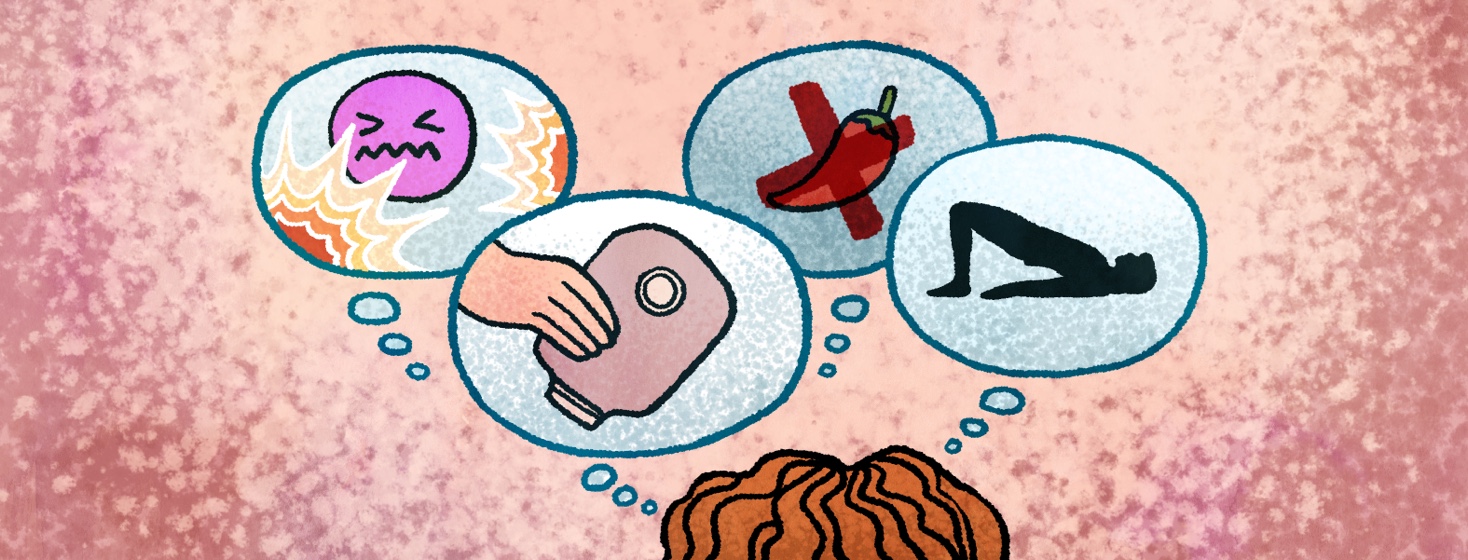4 Things I Wish I Knew Before My Radical Cystectomy
When I met with my urologic oncology surgeon the first time, a friend who is a nurse went with me. I had a list of questions, and she went over them with me. We hit all the clinical points head-on, and I quickly agreed to my radical cystectomy. So quickly that my very capable surgeon with a dry sense of humor did not know how to react.
Urgency to remove the cancer
He was shocked at my readiness to evict my organs, especially my reproductive organs, and surprised at my familiarity with ostomies. I had suffered, in virtual silence, for over two years and I just wanted the cancer to get out of my body! I wanted to return to a sense of normality and live a life where I was not in constant, excruciating pain and discomfort.
Despite being so ready to move forward with his plan of action, there were things I didn't even know to ask and things that he probably didn't even know to share.
1. The severity of post-surgery pain
When you wake up from surgery, you will feel like you were cut from chin to crotch. When I woke up from my surgery, the pain was unreal despite being given pain meds. My surgery was planned for eight hours and ended up taking nine hours. I'm not even sure exactly how long I was "out" as it all blended together for the first few days. In actuality, my scar is only about 4 to 5 inches, but I could have sworn in those first few weeks that it was much, much larger! Obviously, with time, it gets better, but it is definitely a level of pain that I was not prepared for.
2. Your stoma will have a mind of its own
Your stoma will have a mind of its own, and changing a urostomy appliance will become an art form. I remember when my Wound, Ostomy, and Continence (WOC) nurse first came to see me, she started going over all of this information. She realized I probably wouldn't retain a lot of it, but she was shocked that I already knew a lot of the terminology associated with ostomies. I explained that I worked in a GI (gastrointestinal) office as an administrator, so I was familiar with the terminology and the technology, but I had never actually seen one in person.
The learning curve
The first day, she changed everything with instructive dialogue as I watched. The next day when she came, I wanted to see if I could do it on my own. She talked me through everything, and as I was taking the washcloth off of my stoma, it sprouted urine out as if I was walking past a barrel of clams at a fresh seaside market or something! I screamed and slammed the washcloth into my belly to cover my stoma. We laughed, and I apologized for screaming. I just had not expected that!
Four years later, I can predict it all a bit better. My stoma is still unpredictable. I have to really pay attention when I'm changing my appliance so that I don't end up spraying everything with urine.
3. Your digestive system will be forever altered
They mess with just enough of your bowels that your digestive system will be forever different. Fifteen centimeters is not a lot. It is the average length of ileum (part of your bowel system) that they use to reroute the plumbing from your kidneys to your stoma. All it takes is 15 cm for your digestive system to react differently to a lot!
Navigating new food sensitivities
Greasy, spicy, and sweet foods all hit me differently now, and I definitely feel some type of way about that! I expected sweet foods to react differently, and I really have not had a lot of greasy foods for about 15 years now, but I love spicy! Antacids, stool softeners, and Imodium are all over-the-counter meds that I now not only keep on hand, but I often actually carry them with me now. I never know what is going to react with my system or how, and I don't want to be caught off guard.
4. The reality of pelvic floor dysfunction
It is not that I thought this was a myth. I never thought it would happen to me since my pelvis had not experienced the trauma of childbirth. I never thought that a procedure could cause it. After hearing an Inflammatory Bowel Disease (IBD) physician speak about sexuality issues with ostomies at a conference, a lot of things I was experiencing made a lot more sense.
The invisible impact of nerve damage
Nerves are damaged during surgery since there is no way to see and/or cut around them during a procedure. This not only impacts pelvic strength and sexuality, but it can contribute to other problems. Problems, for instance, involving the control of your bowels. There are physical therapists out there who specialize in pelvic trauma. Certain exercises can help to reverse some of these effects. You will have to put work in to overcome this one. Time alone is not enough.
Managing the new normal
All of these things and more impact life after your radical cystectomy. The medical community does not discuss these issues with patients prior to surgery. You could call it a gap in medical preparation. These issues are all manageable. With the help of your medical team, you can overcome them all. Even with these challenges, my quality of life is better now than it was before bladder cancer.

Join the conversation